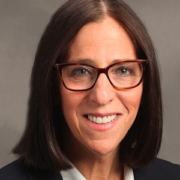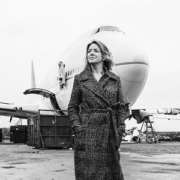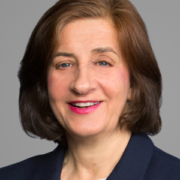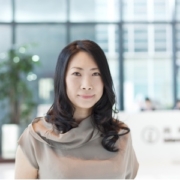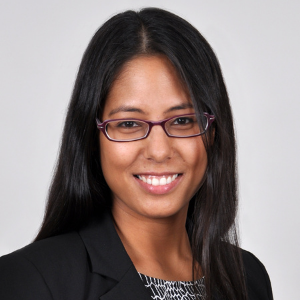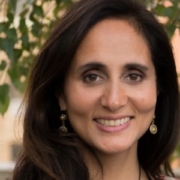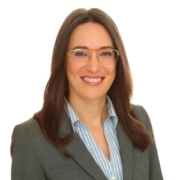Voice of Experience: Diane Gabriel, Wells Fargo Advisors
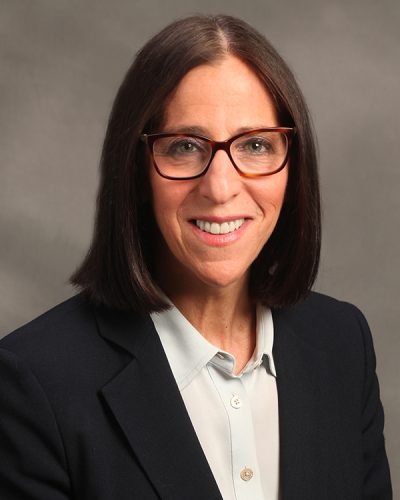 “Say yes,” recommends Wells Fargo Advisors’ Diane Gabriel.
“Say yes,” recommends Wells Fargo Advisors’ Diane Gabriel.
“There will be lots of risks and challenges, but embracing them brings opportunities and rewards.”
She finds that women tend to be more risk adverse and turn down opportunities because they don’t think they’re ready for them, but that can be counterproductive. “If you turn something down, you might not get the chance again.”
In fact, one of her favorite sayings is “Leap, and the net will appear.”
Words she lives by herself, based on her career trajectory.
Succeeding as a Woman in a Man’s World
Gabriel launched her career in 1982 – a time when only 10 percent of advisors were female – as a 21-year-old only female advisor at a branch full of men. Having grown up with older brothers and a supportive family, she was undaunted by the male-dominated, competitive environment, and in fact, thrived.
She became the company’s youngest officer at age 25 and then was asked to open a branch at 26. They sold the branch to a predecessor firm to her current organization, and she continued as a producing branch manager. Based on her success, she was tapped to help launch the firm’s independent broker-dealer. From there, she managed the online brokerage channel, and their phone-based advisor teams.
Seeing the Opportunities in the Next Generation
In 2017 Gabriel was asked to lead Wells Fargo Advisors’ Next Generation Talent Program, overseeing four financial advisor programs and one branch manager leadership program.
Being part of this groundbreaking effort is the professional achievement she is most proud of so far, parlaying her passion into having a hand in attracting almost 1,000 talented financial advisors to the brokerage industry.
“Leading our efforts across the Next Gen advisor and manager programs means ensuring that we are truly changing the face of the financial advisor workforce and ensuring its diversity,” she says. She is proud that today the program is about 40 percent “diverse,” not only in ethnicity and gender, but encompassing different ages, abilities and experiences.
The reason the program has been able to attract such a diverse group is because it takes an industry standard – a variable based compensation model — and modifies it to allow for a longer runway with salary and bonus-based compensation, while advisors learn about the industry. That, combined with the program philosophy of teaming and mentoring, has resulted in an overwhelming 82 percent retention rate.
“Because we eliminated the sink-or-swim mentality the industry embraced for so many years, our program is encouraging a wider swath of those who can bring a myriad of advice and viewpoints to clients,” Gabriel says. “It also allows us to address client needs too; for example, it will allow our team to nurture the next generation of clients, as surveys have found that an overwhelming number of children of existing clients prefer a financial advisor closer to their age.”
It also allows the transfer of clients from seasoned advisors whose book of business has grown too large to adequately service them to a newer advisor with more capacity for developing the relationships needed for ongoing success.
In addition, the firm continues to expand its use of technology. “It enhances how we interact with clients and specifically attracts that younger generation who wants to work with us in a different way.” And by bringing in younger advisors, the firm have the chance to reverse-mentor the more mature advisors and help them embrace this technology too, she notes.
Attracting younger advisors is a key goal of the program, and Gabriel says outreach to the next generation must start early. She has recently started the Community Champion program as a new means to create and maintain a pipeline of talented and diverse prospects for the Next Generation Talent roles. This program encourages financial advisors and leaders to engage with diverse organizations in their communities in an effort to educate diverse job seekers about Next Gen talent opportunities.
Although the industry has changed, it is still largely male-dominated, and women who are going to succeed have to be ready to stand shoulder to shoulder in an environment of men. However, Gabriel adds, “Studies show that the majority of women have said they would prefer to work with a female advisor so gender could be advantageous in this instance.”
Gabriel recommends finding mentors of both genders, identifying professionals you admire, creating your own “board of advisors” and then spending time with them to help build the qualities and standards you want to emulate.
Additional Programs Focused on Women’s Needs
In adding to the Next Generation Talent efforts, Gabriel has been active with Wells Fargo Advisor’s multiple programs designed to reach women. Eleven years ago, she started and has since served as co-chair of the National Women’s Summit, where between 300 and 500 top female financial advisors and managers from around the country are invited for personal and professional development. It’s a breath of fresh air for many of the women who are the only females in their office, yet male “allies” are also invited to the event.
She also helps to spearhead the firm’s Best Practice Forum where its leaders visit 10 -12 markets annually for all-day events for local advisors and managers, along with clients and prospects, that feature meaningful presentations and provides other networking opportunities.
Another program is the Women’s Business Exchange, which consists of monthly phone calls in which female team members share about a variety of topics and best practices.
And finally, Gabriel is also involved in the Women’s Team Member Network, which features speakers from across Wells Fargo’s enterprise and also includes mentoring and community service activities.
Outside of work, Gabriel continues to share her passion for the industry by acting as an executive sponsor of a program at Harris-Stowe State University, a historically black college in St. Louis with mostly first-generation students who may not have had exposure to job searching and interview skills. “I help students with everything from formatting a resume to cultivating a firm handshake,” she says. “If we want a more diverse and younger generation to join the industry, we have to help them be prepared.”
A passionate animal lover, she also spends time at shelters helping get pets ready for adoption.

